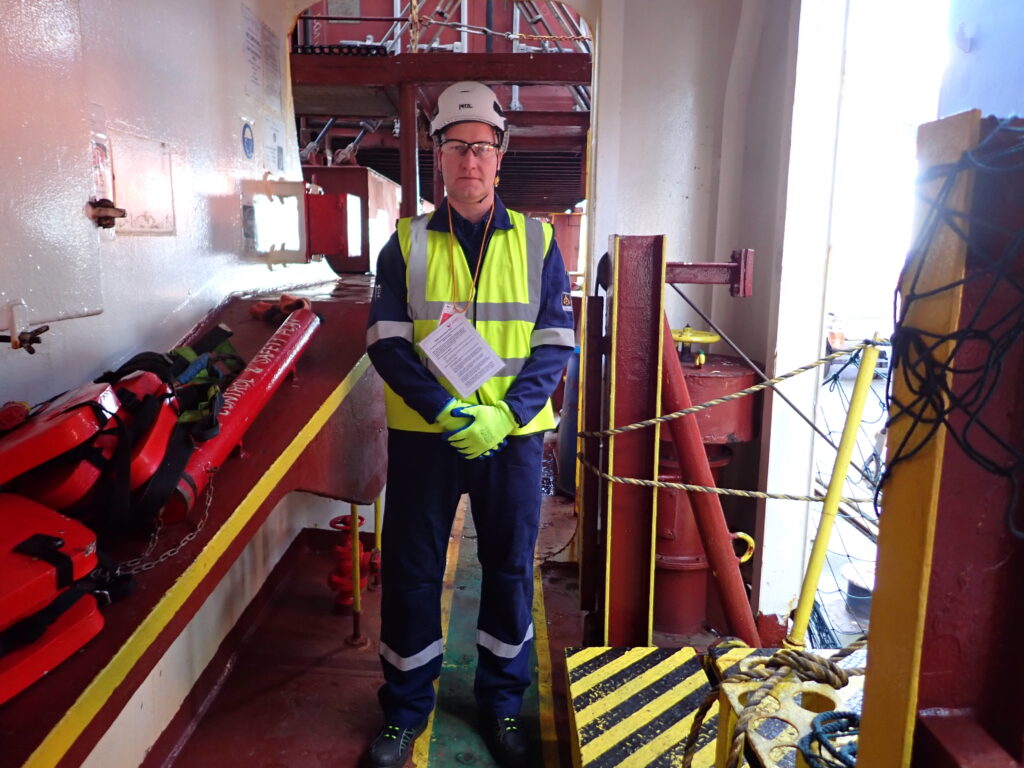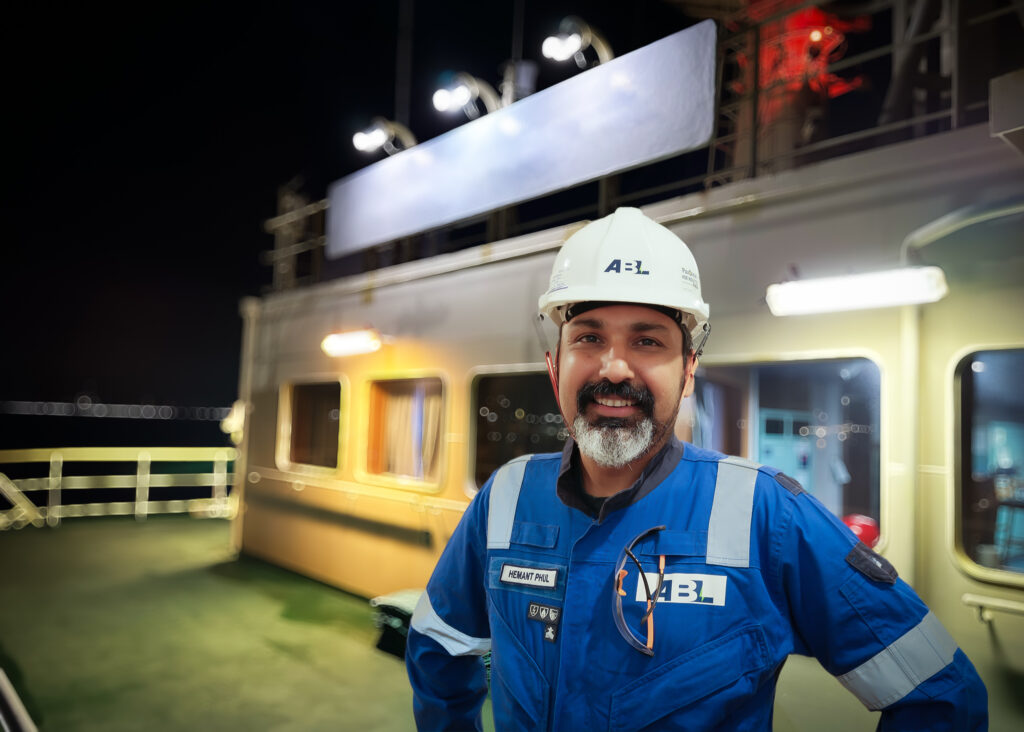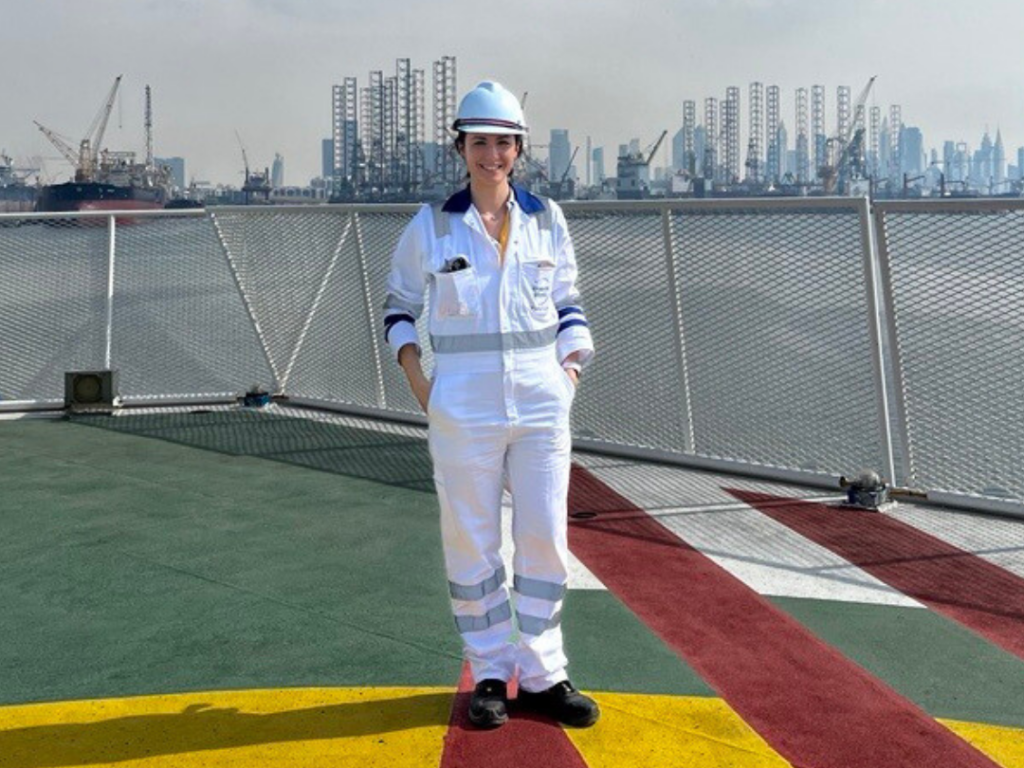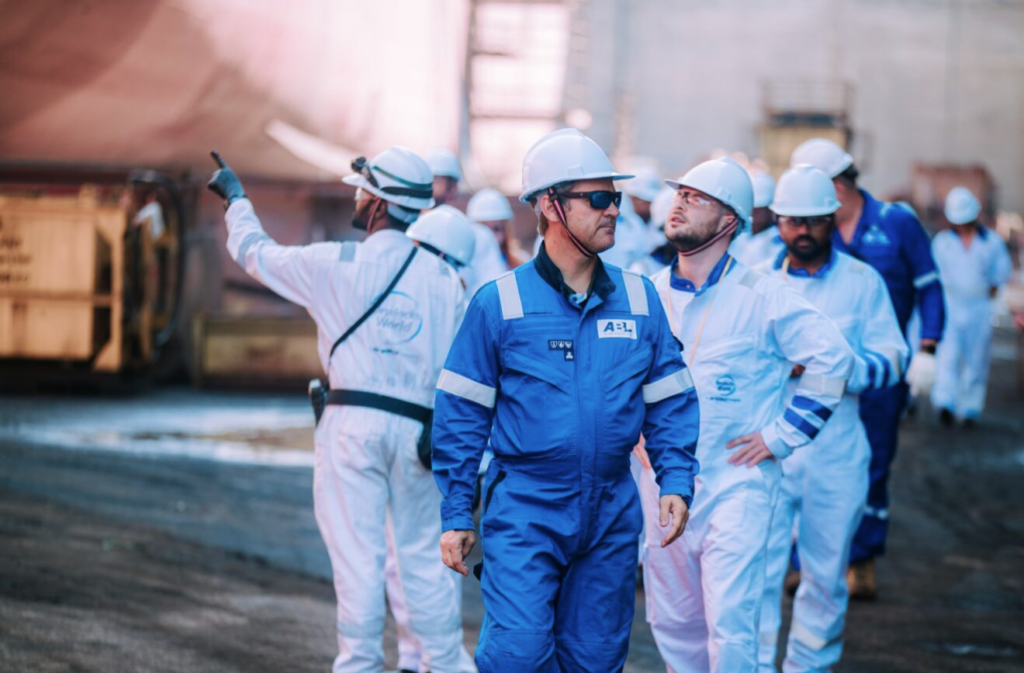Celebrating the Day of the Seafarer 2024
In 2010, the day of the seafarer was established to recognise the unique contribution made by seafarers from all over the world to international seaborne trade, the world economy and civil society as a whole.
Every year, the 25th of June acts as a reminder and encourages Governments, shipping organisations, companies, shipowners and all other parties concerned to duly and appropriately promote the Day of the Seafarer and take action to celebrate it meaningfully.
This year’s campaign looks at seafarers’ contribution to making the maritime sector a safer workplace.
With our legacy dating back to The Salvage Association and over 50% of our maritime team coming from a seafaring background, ABL Group’s enduring commitment to supporting seafaring wellbeing, continues to run through the organisation. From our colleagues across the world, here are some of their top tips for safety at sea.
Daniel Wood, Master Mariner & Ports Specialist, ABL London

”My top tip for your safety at sea: Stay vigilant, use safety equipment properly, and always communicate clearly to protect yourself and the crew.
Safety at sea means ensuring a secure and hazard-free environment for all personnel while on maritime vessels. It encompasses robust safety orientation, comprehensive training on emergency procedures, proper use of safety equipment, and adherence to international maritime standards and regulations.
The key aspect is promoting effective risk management protocols that involve identifying, assessing, and mitigating potential hazards to ensure the safety of personnel and the vessel. Other elements include regular training and drills, maintenance of safety equipment, and implementation of transparent communication and reporting systems. It also involves addressing physical and psychological well-being, preventing accidents, and ensuring quick and effective responses to incidents.
Safety at sea is crucial for protecting lives, minimising injuries, safeguarding the vessel, promoting a culture of vigilance and ensuring a safer maritime environment for all on board.’’
Hemant Phul, P&I / Casualty Services Manager, ABL Singapore

”My top tip for safety at sea: Always wear your PPE, follow safety protocols, and contribute to a culture of safety and open communication.
Safety at sea involves systematically implementing measures to mitigate risks in maritime operations, ensuring the safety of personnel, craft, and the environment.
This includes adherence to Personal Protective Equipment (PPE) requirements, safety policies, comprehensive risk assessments, and compliance with international maritime safety regulations. However, the cornerstone of successful implementation lies in fostering a culture that prioritises safety as a core value.
Effective leadership plays a crucial role in instilling these values throughout an organisation. By integrating safety into all aspects of operations, from rules and procedures to daily practices, leaders create an environment where safety is not just a requirement but a shared responsibility. This approach encourages open communication, proactive hazard identification and mitigation strategies, enhancing safety outcomes significantly.
Regardless of their role or location, every person involved in the operation, either aboard or on-shore, must contribute to cultivating a safety culture that fosters trust and empowers decision-makers at sea.’’
Maria Dragoumerli, Country Manager Greece

”My top tip for your safety at sea: Never take shortcuts – Your diligence ensures everyone returns home safely
In my experience, both on board and ashore, I have seen first-hand the critical difference that strict adherence to safety standards can make. Every procedure, every safety check, and every piece of equipment has a purpose—each designed to protect the vessel, the environment, and most importantly, our lives!
Safety is a continuous process. It involves regular maintenance of equipment, thorough safety drills, and constant vigilance. Cutting corners may save a few minutes, but the potential risks far outweigh any perceived benefits. It’s about creating a culture where safety is ingrained in every action and decision, where each team member understands that their role is crucial in maintaining a safe working environment.
Remember, taking no shortcuts at sea is not just about following rules—it’s about ensuring that everyone returns home safely to their families’’
Wayne Neves, Maritime MD, ABL MENA & India

”My top tip for safety at sea: Know your ship’s safety protocols, wear your PPE, stay vigilant for hazards, and foster teamwork through open communication
Safety procedures must always be a top priority. This includes familiarising oneself with the ship’s safety protocols, participating in regular safety drills, and wearing appropriate (PPE) at all times. Vigilance in identifying and reporting potential hazards is essential to preventing accidents.
Effective communication is the backbone of a safe and efficient maritime operation. Clear and open lines of communication among crew members ensure that everyone is aware of their responsibilities and any potential risks. Encouraging a culture were speaking up about safety concerns is welcomed and acted upon can prevent incidents before they occur.
Finally, fostering a supportive environment on board can make a significant difference. Building strong, trust-based relationships among crew members promotes teamwork and ensures that everyone looks out for each other’s safety and wellbeing.’’
Closing remarks by Mark McGurran, ABL Group Maritime MD
‘’The sea and seafarers are at the very heart of our daily work in the maritime team at ABL Group. With over 50% of our team coming from a seafaring background, this is a cause that resonates deeply with us.

Throughout the years, we’ve been promoting safety at sea and prioritised the wellbeing of our colleagues and friends through initiatives such as blood donations in Singapore, our involvement in supporting seafarer facilities in Lagos and our ongoing commitment to the Mission to Seafarers worldwide.
We are also proudly a co-signatory of The Neptune Declaration on Seafarer Wellbeing and Crew Change, recognising that we have a shared responsibility to build a more resilient maritime logistics chain, by working together across the maritime sector with industry stakeholders, organisations and governments to implement solutions that in practice, ensure the wellbeing of the key workers responsible for the transportation of 90% of global trade.
As a seafarer myself, coming from a long line of seafarers—both my parents and grandfathers were seafarers—this mission is personally significant to me. The Day of The Seafarer acts as a reminder of the sacrifice seafarers make on a daily basis to keep our economies and supply chains going; and we owe it to them to do our best to ensure safety at sea whenever possible.
We understand that people are at the centre of everything we do, and we value every seafaring man and woman out at sea today.’’
ABL brings together the deepest pool of multi-disciplinary expertise to support all areas of shipping, from early advisory and technical due diligence, navigational planning, early engineering, vessel design and modifications, through to operations, with surveys, inspections and audits, as well as world-class marine warranty survey, to supporting in the minimising of losses with marine casualty management, salvage and wreck removal, and expert witness work.
